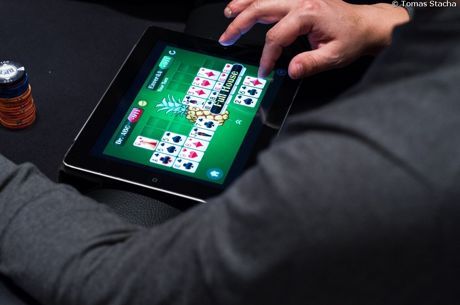Ace Speaks Live 04: Making the transition from online to live

When I started playing poker for a living a bit more than seven years ago, the games were played either in brick and mortar cardrooms, or in small (sometimes illegal) cardrooms. Nowadays, the majority of the games is played online. In fact, there is a whole bunch of players who play on the Internet almost exclusively, and who have never even played live! For them, this article may be of use, as I will describe some things that they may not know about poker in a regular casino, and I will talk about the necessary adjustments to these players' games. In the next article, I will then give advice for the people who, like me, have started out playing in live games, but who don't want to miss out on the exciting stuff that's happening online nowadays. But that's for next time. For now, let's focus on some of the differences between live and online, and on the things that the Internet player needs to be aware of when playing live.
Adjustment to the slower speed / Avoid the temptation of playing too many hands
People who play online are used to seeing at least 40 hands per hour on a single table. Because a fairly large percentage of these players (myself included) play more than one table, they may get to see 100 or even 140 hands an hour. This means that for a lot of players folding hands has become almost second nature, as usually the next hand will already be waiting for them.
But in a brick and mortar casino, this is not the case. In some casinos (especially those with slow dealers, or in big-bet games where the pace tends to be slower), it is not unusual to get only 25 to 30 hands an hour. On more than one occasion, I have seen people who play very tight online get involved in a large number of hands live, simply because the action is too slow for them and they tend to get bored. (Also, because they are used to reaching the river maybe 7 or 8 times an hour online, they cannot seem to grasp the idea that in live poker it is rather common not to reach any river during an hour's worth of play.) So, you will have to adjust to the different pace of the game, because if you don't, then you will be giving up a significant part of your edge.
Be aware that not only can you see your opponents, but they can see you too
A lot of people who are successful online, play more or less according to the following pattern. They quickly fold all unplayable hands, and like to play fast whenever they are involved in a hand. They analyze quickly "what is my hand, what is my position relative to the button, what type of player am I up against, tight / loose, passive / aggressive, etc.", and then they quickly come up with what they think is the appropriate decision. In live poker, there are a few more things to consider. Live, a large part of the good players' edge comes from reading their opponents' hands based on a "feel" of what's going on, and sometimes you've got to take a little time to analyze this correctly. Often in a live game you will know when you can bet a marginal hand for value because of the behavior of your opponent, and sometimes you can simply see that your opponent has flopped something very strong. People who are new to live poker should learn that it is not only important how to play your hands in the theoretically correct manner, but also that they should adjust to tells that their opponents give away, and should try to "feel" the strength that may or may not be out there. But the truth is that most of them are more prone to actually give away tells than to be spotting them. Because online a pokerface is not necessary, even experienced players who make the transition to live poker are likely to make beginner mistakes like glancing at their chips shortly whenever they have a real hand, or trying to prevent their opponent from betting by reaching for their chips prematurely. When you are up against people who regularly play live, they will have an edge on you because they can see your habits and tendencies, while you may not be able to correctly analyze theirs.
Table and seat-selection are different
People who play online usually go to the lobby to find the best possible games. With one click, they can find the tables with either the biggest pots, the ones where a large number of players tends to see the flop, or they will do a quick search of where their "buddies" -i.e., the very worst players- are seated. (Usually, the most profitable games for a pro are either loose / passive or loose / aggressive games. Depending upon your own strengths and weaknesses, you will probably analyze the potential profitability of a game according to either one of these characteristics.) While in live games you can do this last thing too, it will sometimes take a little more time to find the best games, because whenever you get into a cardroom there's no history available of the pot size or the number of callers during the last 5, 10 or 20 hands. So, you will have to do this analysis yourself, and quite a few people who are used to playing online have problems performing this analysis correctly.
A related thing is your seat selection. While online you often don't have much choice (you usually have to accept the one seat that becomes available, on most sites it is impossible to make seat changes as in B&M, and because people move in and out of seats so quickly it is of not much use to pay too much attention to your seat), in live games the seat you choose can make a hell of a difference. Especially when a new table opens, you should be able to pick the seat that is the most profitable in the long run, and if you cannot get into that seat immediately, you should try to move into it later. (For most games, this would be the seat where you've got some weak / tight players to your left and some loose or aggressive players to your right.) Failure to do so means that you will be giving away a big part of your edge, and this may well mean the difference between being a long-term winner in live games and a long-term loser.
Some final words
In the next article, I will discuss the necessary adjustments for people like me who have gone the other way, and who from a B&M background have now moved into Internet play. Take care and good luck.








